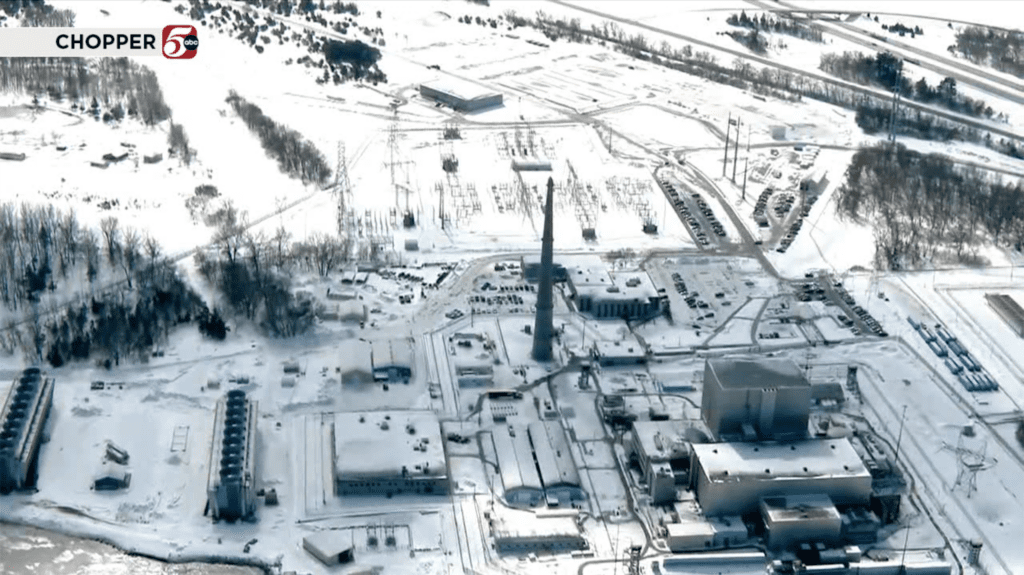Watered Down: Minnesota agencies criticized for delayed alerts about recent leaks and spills
When radioactive waste from a nuclear power plant leaked into the ground, neighbors didn’t find out for months.
When an oil company breached an aquifer while installing a controversial pipeline, millions of gallons of water flowed uncontrollably for months before state regulators confirmed the leak.
And when state officials detected high levels of a dangerous chemical in the groundwater where a train derailed and spilled ethanol earlier this year, nobody told the town.
In Minnesota, state agencies are facing growing criticism for withholding information from the public when groundwater is threatened by a leak, spill or contamination.
“Knowledge is power. And I don’t think they want people to have that power,” said Jeff Broberg, a geologist who is critical of how and when state agencies tell the public when something is wrong with the water.
“There’s a huge deficiency in this,” he said.
Critics say their concerns were confirmed last month when the United States Environmental Protection Agency (EPA) found the state was not doing enough to inform the public about dangerous levels of nitrates in the drinking water in southeast Minnesota.
The EPA said the three state agencies involved, the Minnesota Pollution Control Agency (MPCA), Department of Agriculture, and Department of Health, need to urgently address the pollution.
“It’s contaminating people to where now we have an imminent health risk,” Broberg said.
The federal agency is now telling the state to do what many believe is long overdue: notify those impacted, provide bottled water, and find a solution. If not, the EPA warned it would consider “exercising our independent emergency and enforcement authorities,” according to a stern letter sent to the agencies last month.
In a joint statement last month, the agencies said they are now working with the EPA on developing a plan to “identify and contact residents impacted by the nitrate contamination.”
Delayed alerts
It’s the third time this year the MPCA has been criticized for not disclosing more information about contaminated water.
The agency faced blowback for not initially telling residents about chemical leaks from the nuclear power plant in Monticello as well as after a train derailment in Raymond last spring.
The MPCA declined repeated requests for an interview.
In a statement, a spokesperson defended the agency’s “timely” response to leaks.
“Part of the problem is the more information people have, the more questions they’ll ask,” said Mark Toso, who spent nearly 30 years at the MPCA.
Toso sued the agency in 2021 over transparency concerns and how it handled petroleum leak sites. MPCA settled the case last year for more than $150,000 but admitted no wrongdoing.
“I see the same things going on now that happened when I was working there,” he said.
Radioactive leak
In March of this year, the MPCA and Minnesota Department of Health (MDH) issued a joint statement to announce what it had known for months: Xcel’s nuclear power plant in Monticello was leaking radioactive waste into the ground.
“It would have been nice to know since we live right next to the power plant,” one resident told 5 EYEWITNESS NEWS the day of the announcement.

MPCA previously defended its decision to hold off on telling the community, saying it needed more time to understand the extent of the leak.
But internal emails obtained through a public records request earlier this year revealed an MPCA official expressed concern about the waste reaching the Mississippi River and that “everything should be done to keep that from happening.”
The email was sent in February — three months after the leak was identified and weeks before the agency went public.
“I’ve had a bad feeling about this from the beginning,” that official said in the same internal email, expressing frustration that no state or federal agency was stepping up to take control of the matter.
Calls for oversight
Rep. Kristi Pursell, DFL-Northfield, said she remembers the day lawmakers finally learned about the leak during a committee hearing at the state Capitol in March.
“They turned off the cameras and the microphones and asked everyone else to leave and sort of gave us a briefing about the tritium water leak at the Xcel Energy plant in Monticello,” she said. “And we said, ‘Oh my gosh, you know, when was this detected?'”
Pursell says bringing back a citizen’s board that was abolished in 2015 would restore a level of oversight and transparency to the agency.
In a statement, an MPCA spokesperson said it’s committed to its role of protecting health and safety, adding that “we distribute timely and accurate information when there is a risk to public health or widespread community rumors.”
The agency has always said there was no risk to the public in Monticello.
“What they’re failing to recognize is perception is reality. And if you don’t have the data, if you don’t have the information, the knowledge, the tools, how can you orient yourself to make a decision to keep your family safe?” Broberg noted.
Public criticism prompted another state agency to change its approach in 2021.
When Enbridge breached an aquifer during the construction of Line 3 and released millions of gallons of water, the Department of Natural Resources said privacy laws prevented it from disclosing the leak while it was still under investigation.
After community pushback and more aquifer breaches, the DNR decided to notify the public before its investigation was completed.
“We did want to be responsive to the public’s desire to know when a breach was confirmed,” a DNR spokesperson said to 5 INVESTIGATES.
“Concealing that information is not helping us,” Broberg said.